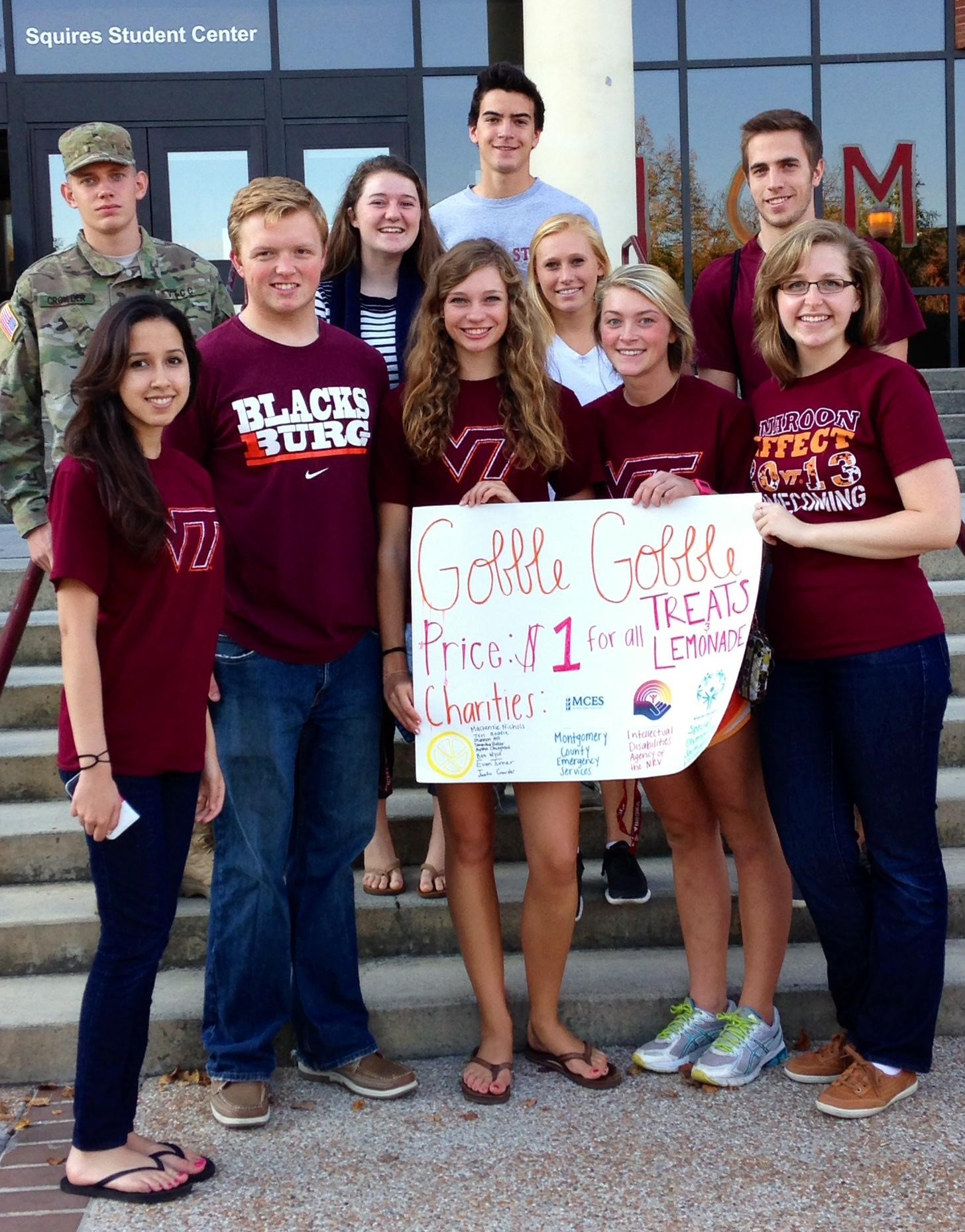$11,000 raised for charities through lemonade stand project in First Year Experiences course

Lemonade stands are not just for neighborhood kids. Pamplin College of Business first-year students opened their own stands this semester and raised more than $11,000 for three local charities while putting their business skills to the test.
The course – Quick-Start to Business – was first offered in fall 2011 as a First Year Experiences or Pathways to Success Program. This is the first year students were required to set-up lemonade stands as a course assignment.
Students were randomly assigned to 54 different teams, which all met and strategized about how to make money.
Through the process, they learned about the many facets of running of business, said Willie Jester, the course instructor. “We are making money and we need to account for it. Now what do we do with the money – finance. How do we manage all of the teams of people and market what is going on? What do we do from an IT basis? There’s a fresh sense of how it all works together.”
Students got real taste of tactics. “After debating our product and pricing strategies, we decided not to charge anything for our lemonade, but rather to simply ask for donations,” said Kevin Bailey of Fairfax, Va., a first-year student majoring in hospitality and tourism management. His team raised around $450. “This experience of starting and running a lemonade stand with my classmates gave me the opportunity to apply classroom theories to a real-world business venture.”
Lauren Alexander of Culpeper, Va., a first-year student majoring in marketing, said her team used the same tactic of asking for donations instead of a set price to their advantage. “In the long run, people were far more generous.”
“As the project evolved, students started realizing you can’t just stand there saying you are selling lemonade. They learned to ask questions and engage with the customers,” said Jester. “They knew someone who could play the guitar, so all of a sudden they were playing a guitar at the stand. Some made their own cookies. Someone got a football signed by Coach Beamer that they raffled off.”
Beyond concrete selling tactics, students learned ideas to apply to other ventures. “From the beginning, my group set a high financial goal,” said Alexander. “Although we did not reach this goal, I believe we pushed ourselves more and did better in the long run since we aimed high at the very beginning.”
The project put what they were learning in class to the test. “The corporations and businesses that come to hire want to see teamwork, leadership, and communication skills,” Jester said. “This is something that’s real that they can put on their resume.”
Overall, students said the class helped set them up for success as they now move beyond their first semester of college into the rest of their academic and professional career.
“The class is an excellent way to network with people who are involved with Pamplin and the university. In addition, it provides a wonderful opportunity to meet business professionals outside of Virginia Tech,” Alexander said. “But the class time alone is of little benefit for students who do not put the information to use – you get out of this class what you put into it.”
That entrepreneurial and go-getter spirit is what Jester hopes students take away from the course. “We had a saying in class. You can have a job or a career. And job stands for ‘just over broke.’ A career is when you control where you work, a job is when someone else controls where you work. We want to empower students with the skill set so that when they leave here, they have the confidence they can do anything.”
The three charities that benefited from the lemonade stand project include: Montgomery County Emergency Services, the Special Olympics of Southwest Virginia, and Intellectual Disabilities Agency of the New River Valley.
Dedicated to its motto, Ut Prosim (That I May Serve), Virginia Tech takes a hands-on, engaging approach to education, preparing scholars to be leaders in their fields and communities. As the commonwealth’s most comprehensive university and its leading research institution, Virginia Tech offers 240 undergraduate and graduate degree programs to more than 31,000 students and manages a research portfolio of $513 million. The university fulfills its land-grant mission of transforming knowledge to practice through technological leadership and by fueling economic growth and job creation locally, regionally, and across Virginia.




